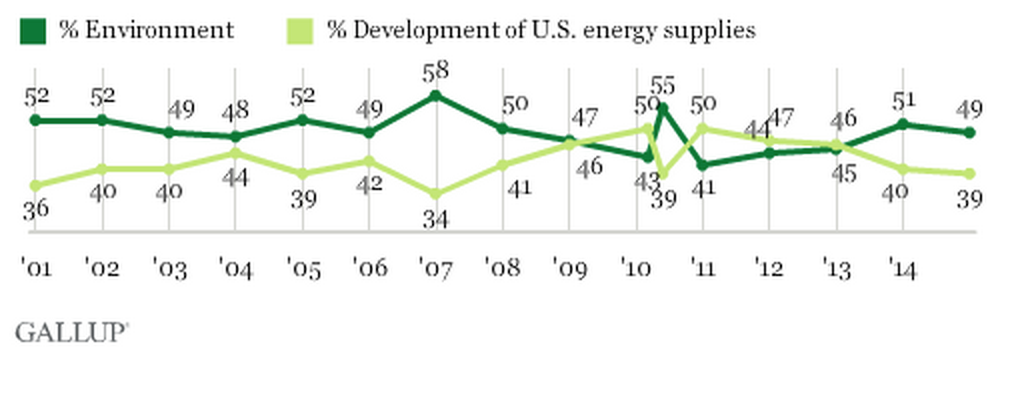Two weeks ago, during a speech at Liberty University in Virginia, Senator Ted Cruz became the first to announce that he’s running for the 2016 presidential election. Since then, Rand Paul, Hillary Clinton, and Marco Rubio have joined him. We’re just at the tip of this election iceberg, but already there are issues surrounding each candidate that research can help contextualize.
1. RAND PAUL
Whether you agree with him or not, Kentucky Senator Rand Paul adds a bit of variability to our polarized two-party landscape. While he is a GOP nominee, Paul is a libertarian, which, generally speaking, describes a political stance that is socially liberal but economically conservative. His father, Ron Paul, made admirable attempts for the presidency in 2008 and 2012, but was never able to gain enough traction for a serious bid. So, has the libertarian movement grown in American since 2012? Will Rand have a better shot than his father?
Not likely. Only 11 percent of Americans describe themselves as libertarian, according to a Pew study released last year. Plus, as the New York Times pointed out last week, libertarians—composed mostly of liberal Millennials “who are more skeptical of regulations and assistance for the poor than their Democratic contemporaries,” and conservative Millennials who may want to “signal socially acceptable views about homosexuality”—tend to not vote.
This spells trouble for Rand, whose prospects are already looking worse than his father’s this time four years ago, according to FiveThirtyEight.
2. HILLARY CLINTON
The former secretary of State announced last weekend that she hopes to become the first female president of the United States. But are Americans likely to vote for a female president?
It would seem so. As we reported earlier this week, a 2012 Gallup poll revealed that 95 percent of Americans would vote for a female president. However, seeing a women take office isn’t necessarily that important to us: According to a Pew survey, only 44 percent of women and 31 percent of men said they hope to see the U.S. elect a female president in their lifetime. (Those percentages are much higher among men and women who identify as Democrats.)

3. TED CRUZ
Not 24 hours after Clinton announced her 2016 bid, Republican Senator Ted Cruz, who declared his GOP candidacy two weeks ago, released a video in which he said, “Hillary Clinton represents the failed policies of the past,” and asks, “Does America want a third Obama term or are we ready for strong conservative leadership to make America great again?” In an accompanying press release, he asked, “Is the world a safer place because Hillary Clinton was Secretary of State? The answer is obvious. No.”
This, of course, is the just the first taste of the political smear campaigns we can expect to be bombarded with for the better part of the upcoming year. With plenty of ammunition, will the GOP’s effort to discredit Hillary work? It just might, according to past research.
A 2012 study by researchers at Arizona State University showed that the more “uncivil” advertisements a voter is exposed to, the more likely he or she is to negatively view that candidate—as long as the attack adds seem relevant, that is. However, political scientists at Columbia University found that while these advertisements do indeed have an effect on voters, the results are short-lived. “Perhaps the effects would have lasted longer than a week had the ads revealed memorable damning information about the opponent,” the author Donald Green wrote. Going forward, we can surely expect Cruz (and Paul) to fire many shots at Hillary, hoping something sticks, and vice versa.
4. MARCO RUBIO
While Marco Rubio announced his candidacy on Monday, the Republican senator from Florida is already facing some early hurdles. This time last year, Rubio went on record about climate change, saying, “I do not believe that human activity is causing these dramatic changes to our climate the way these scientists are portraying it.” He continued: “I do not believe that the laws that they propose we pass will do anything about it, except it will destroy our economy.” This might spell trouble for Rubio, especially considering the Cuban American will be making a major push for the Latino vote.
A 2014 NRDC survey discovered that “nine in 10 Latinos want the government to take action against the dangers of global warming and climate change,” including 68 percent of Republican Latinos. (This is to say nothing, of course, of the 97 percent of scientists who agree the climate change is happening and is caused by humans.)
A Gallup poll released just yesterday may be even more damning for the pro coal and oil senator. Just about half of Americans say that the protection of the environment should be given priority over the development of U.S. energy supplies, “even at the risk of limiting the amount of energy supplies.”

If the first two weeks are any indication, this is going to be a long year of name-calling, climate denying, and stampeding journalists. Stay tuned.
This Week In explores ongoing revelations and research on trending news topics.




